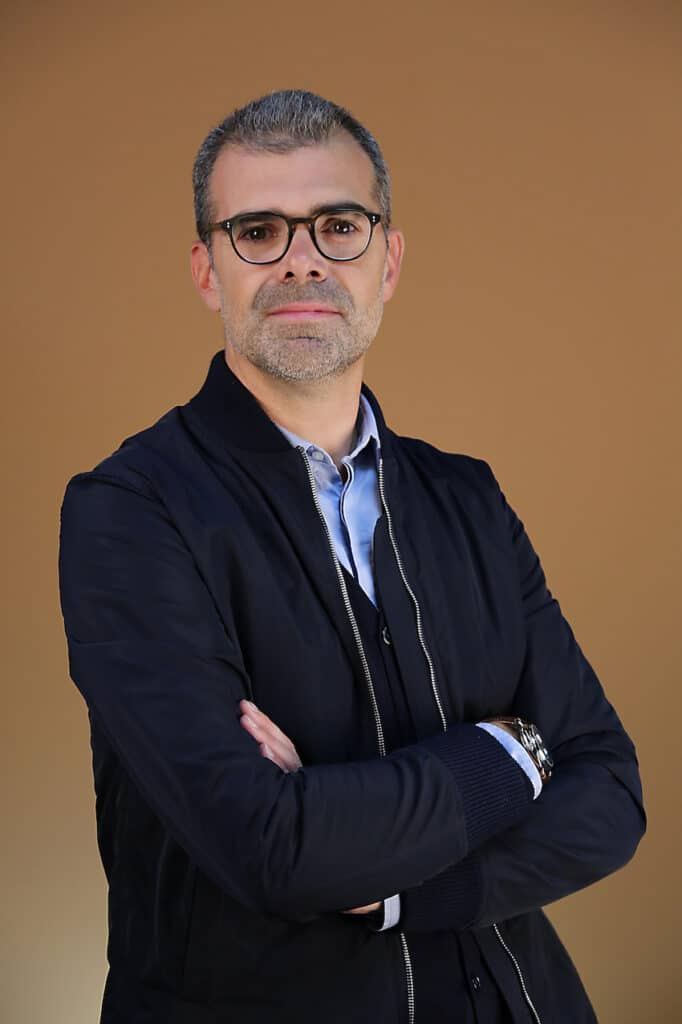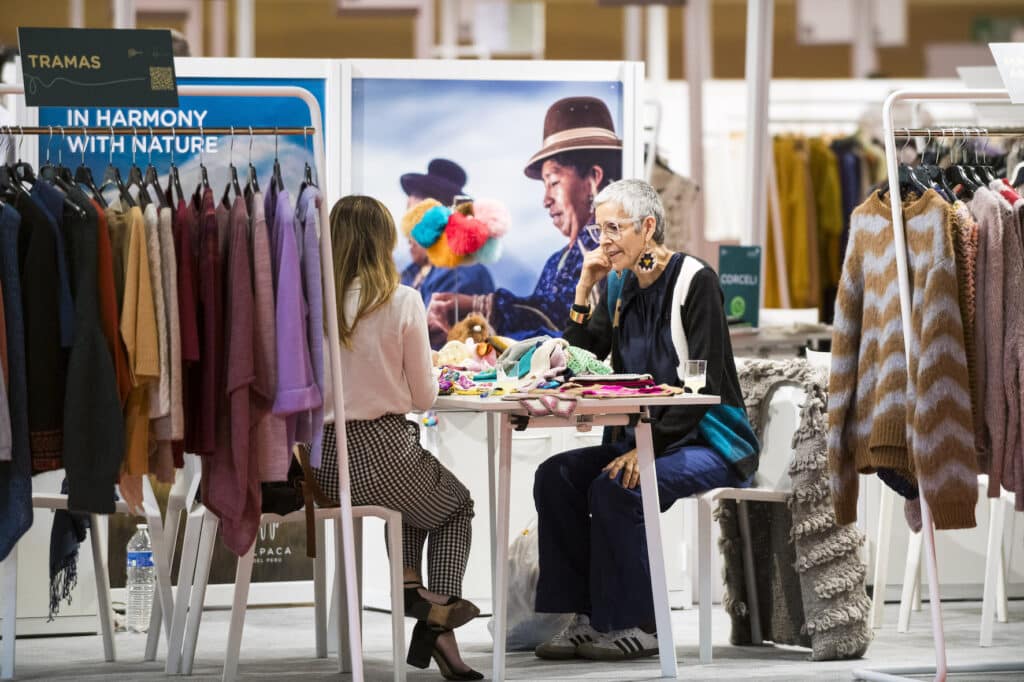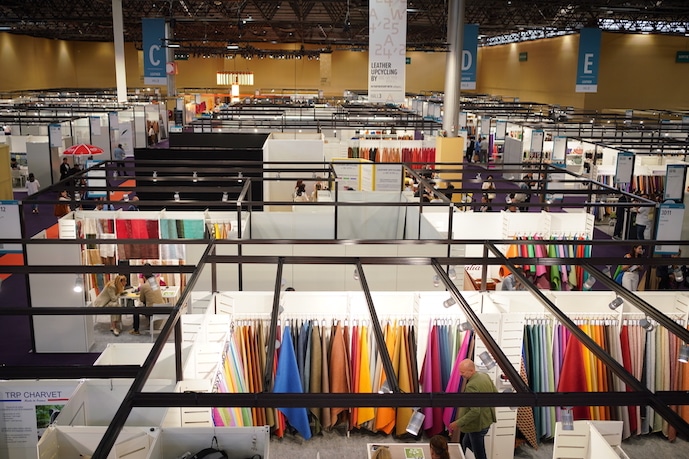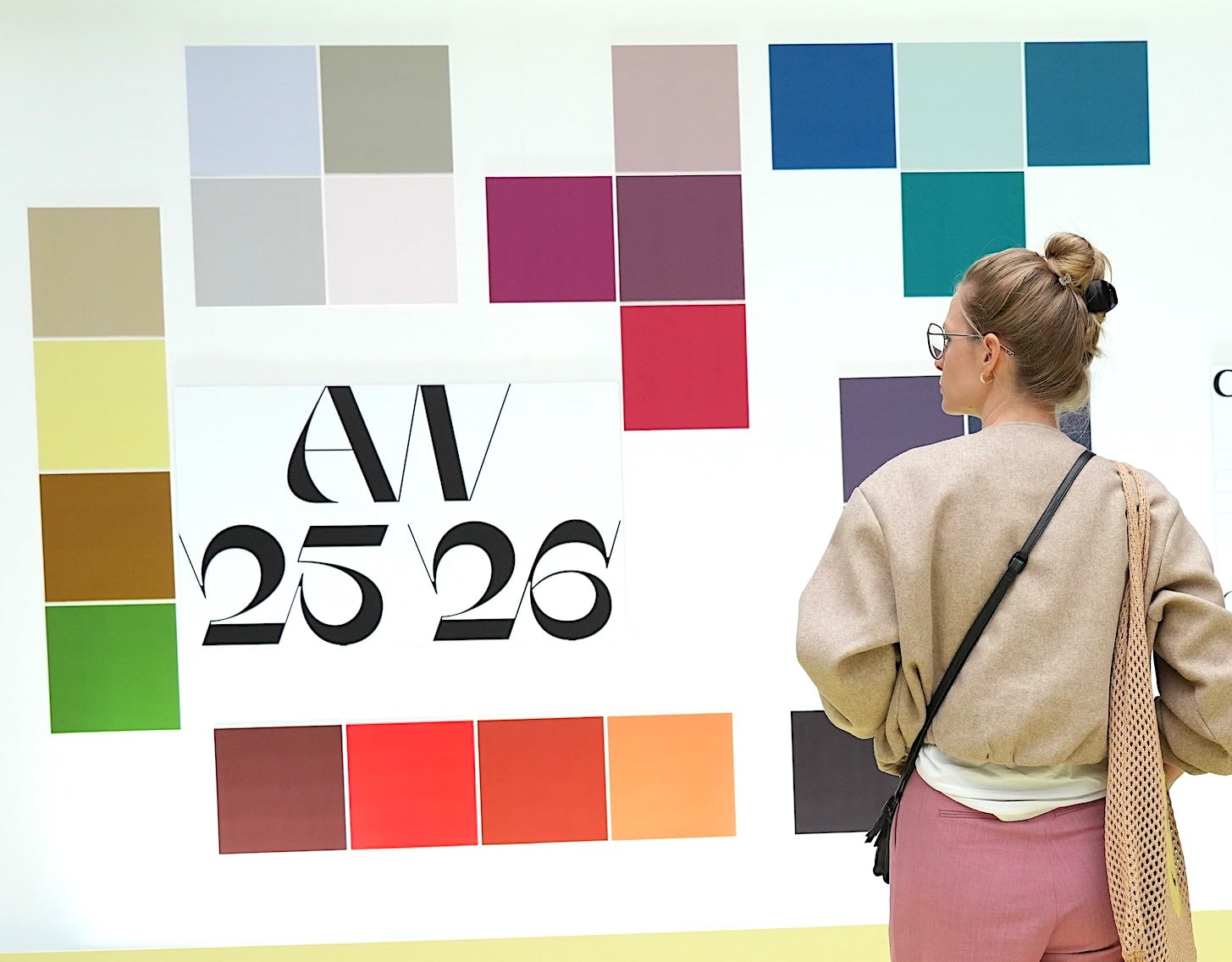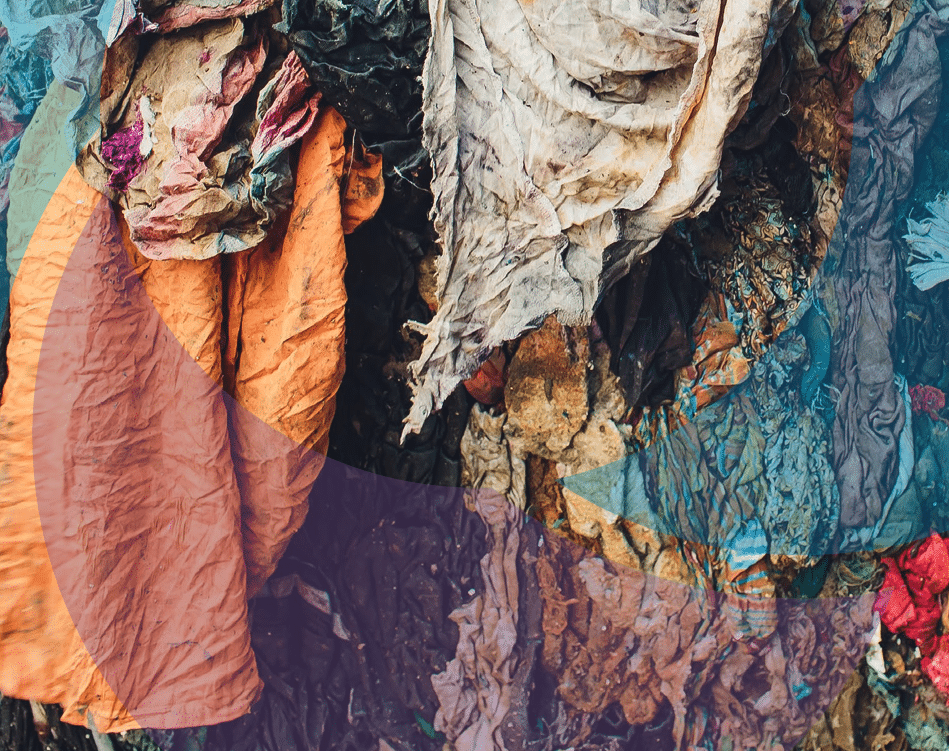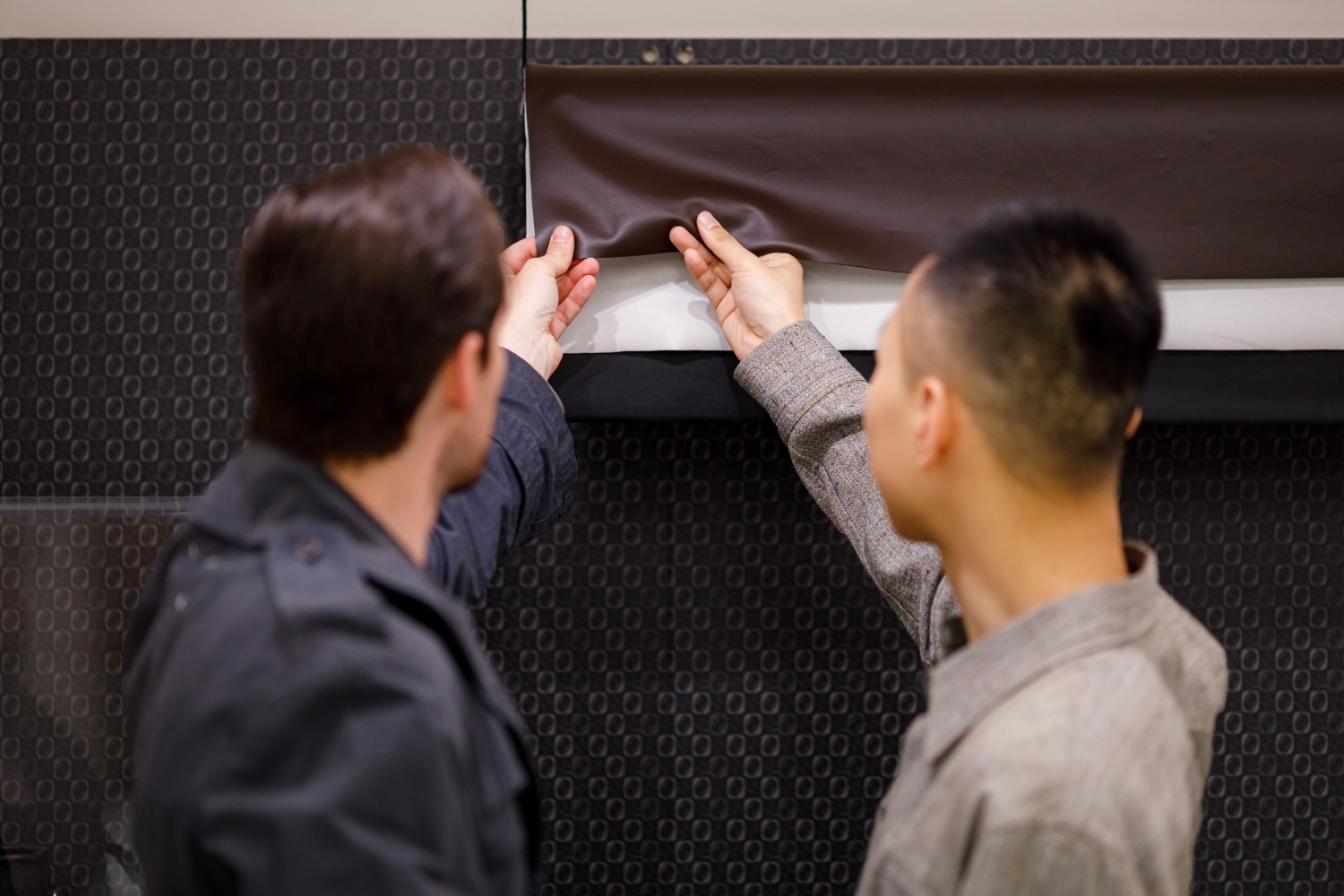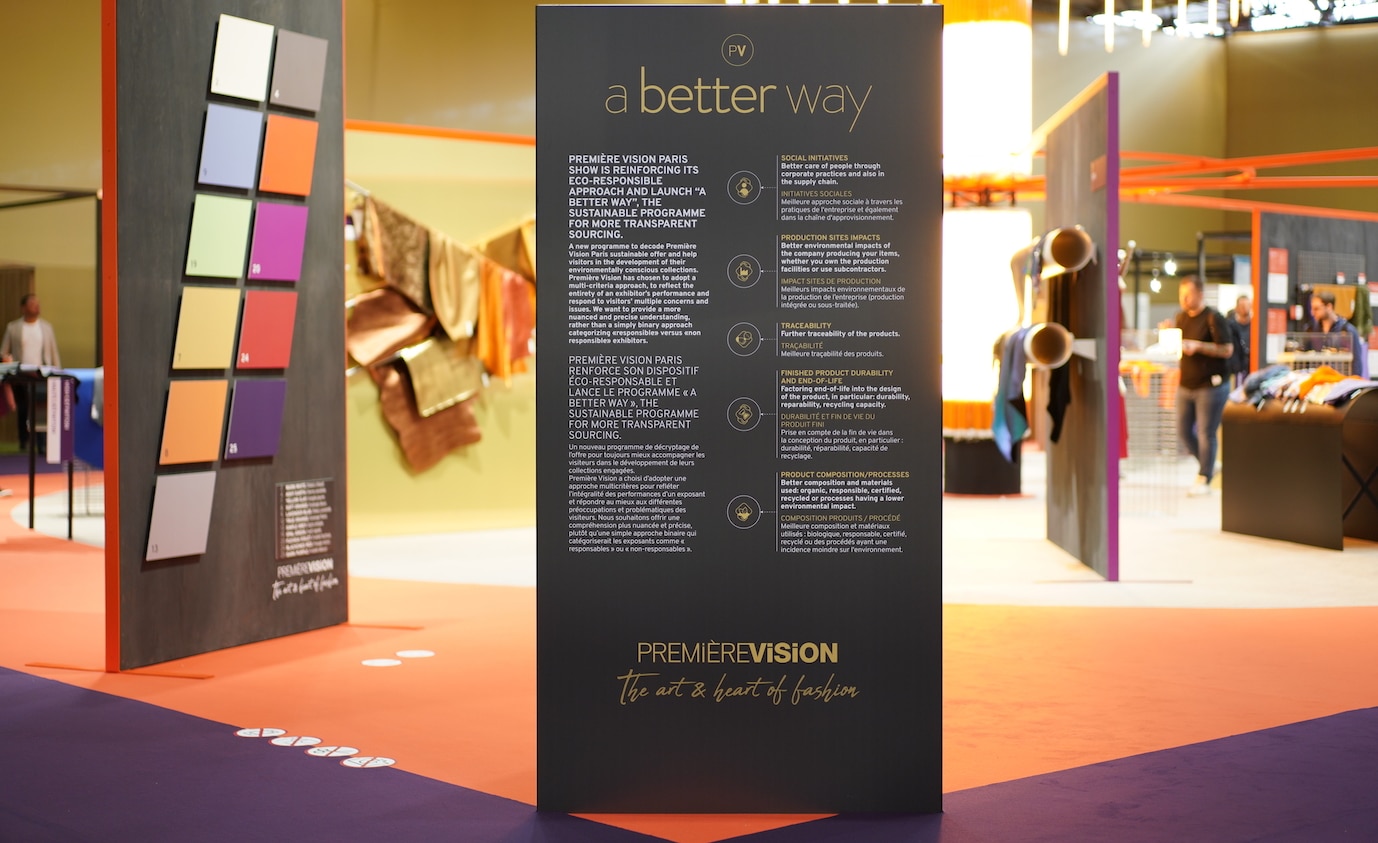
Gilles Lasbordes (Première Vision) : “Sustainability is a key differentiator”
Partner content
Première Vision Paris, the unmissable bi-annual fashion event, returns to present all the latest global trends in multi-material sourcing and create the most beautiful collections for Spring-Summer 2025. At its next edition, to be held from 6 to 8 February 2024 at the Parc des Expositions de Paris Nord Villepinte, the trade event will focus more than ever on sustainability and eco-designed products and services. We spoke to Gilles Lasbordes, Managing Director of Première Vision, who gave us a sneak preview of the new eco-responsible products to be discovered on site.
What is the A Better Way programme?
Among the various tools we’re putting in place to raise awareness among buyers and offer them the latest trends in sustainable and eco-responsible materials, we’ve created A Better Way. Inaugurated last July, this programme offers visitors to Première Vision a guide to the show from an eco-responsible angle, and not just to fashion, the sector that has made up the history of our 50 years of existence.
A Better Way was prepared over a year with industry experts to try and define the 5 pillars on which the project is based, namely: Social Initiatives, Impact of Production, Traceability, Product/Process Composition, Product Life Cycle and End of Life.
Which companies are taking part?
We started in July 2023 with 290 fabric, yarn and leather companies who had voluntarily decided to complete the questionnaire and score high enough to join the A Better Way programme with between 1 and 5 validated pillars.
For February, we will continue to develop this programme and we are proposing to the Smart Creation world, but also to manufacturing, to join A Better Way via this specific industrial questionnaire.
What types of labels and certifications are eligible for this programme?
The questionnaire given to companies, which is the gateway to the A Better Way programme, is based on two aspects. First of all, there are the 5 pillars we have just mentioned, and then there are the labels and certifications.
In fact, we identified around fifteen labels and certifications, based on an audit of 400 companies. And in the end, we choose those who are solid, independent and more international. The aim is to see if these companies are doing things a little more responsibly than others…
This principle is declarative and our audits are carried out with a specialist external company for companies wishing to join the programme. For the moment, we have set the verification rate for the veracity of the data provided at 10 percent.
Do companies that joined the A Better Way last July have to complete the questionnaire again?
No, these companies are not obliged to answer the questionnaire every six months. Some of them, between the July 2023 and February 2024 editions, have improved their production lines, so they’ll be giving out new information and may gain another pillar.
“The awareness is there in the B2B sector, but taking action is more complicated”.
Is there any news about the deadstock companies?
In the Smart Création area, we already have a number of dormant stock companies such as Nona Source and Adapta. In February, we will be hosting the Atelier des matières (created by Chanel in 2019) as well as an area dedicated to our exhibitors who want to embrace this business strategy and propose solutions.
During our last edition in July, a route was proposed to our exhibitors who wanted to have deadstocks. This year, we’re going to be expanding this route and offering products available to buyers.
Deadstocks are mainly used by young brands looking for high-quality fabrics. We are a partner of the Hyères Festival and we see young brands who have difficulty finding materials because they don’t have large volumes. It’s an eco-responsible approach, without the industrial constraints we might otherwise have.
What are your plans for the leather industry this year?
We are promoting the leather industry and all the efforts it is making to be more eco-responsible, and we are also promoting alternative materials. In February, the leather section will feature around 150 exhibitors in Hall 3. We’re going to try to make the most of the entire supply chain. With talks and conferences, we will be covering all the stages before the tannery and welcoming players who will be coming to talk about animal breeding: how they have improved the quality of animal breeding, breeding in France that is done in good conditions, the quality of the feed that the animals eat and which, in this case, will have a repercussion on the quality of the industry’s waste (the skins).
They will also talk about how to provide a good income for farmers, as these are small-scale farms.
To fuel the debate, we will also be welcoming professionals and experts in the environment and technology. They will be talking about traceability from the birth of the animal to the finished product, as well as the environment of the livestock sector and all the rural issues linked to it.
We believe that today, within the framework of the AGEC law we have in France, we need to go back a long way in the chain. As with cotton, we want to know where it comes from, and the same goes for the leather chain. The more traceability we have, the better the behaviour and environmental impact of the processing chain.
Today, a great deal is being done to improve animal welfare. The same is true for tanneries, with improvements to the industrial process (no chemicals, water recovery, etc.).
“High-end companies are the ones who show the way to the rest of the market”.
In terms of innovation, how is Première Vision positioned today?
In today’s fashion industry, it is vital to focus on Research and Development (R&D). Alongside the vegan movement, which is attracting some of the younger generation, the alternative materials that will replace leather are coming into play. What’s more, over the next 5 to 10 years, there are going to be a huge number of innovations, such as new cellular materials, which are still very expensive…
How do you feel about this ecological transition?
Given my role in the sector and my environmental awareness, I’m bound to pay close attention to these issues. I’m careful about what I buy. I also hope that the inflationary and consumer crisis will not put the brakes on the sustainable approach that is underway, because all this investment by brands and manufacturers may seem risky…
Nevertheless, I firmly believe that sustainability is a key differentiator. It’s all about changing a mindset that no longer has any reason to exist. If you’re in the price game, you’ll never change. An ethical price that matches the quality you offer is good for you and good for the planet.
Photos : Première Vision – Photo cover : ©FrancoisDurand




